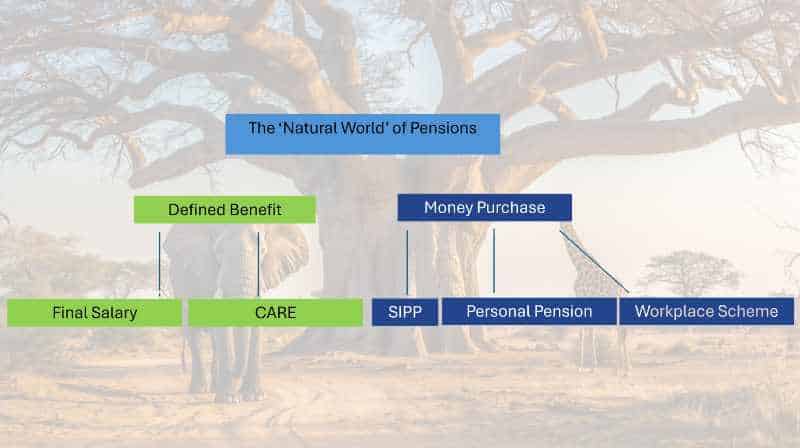
Following Rachel Reeve’s October Budget, which will see pension funds included in estates for IHT purposes from 2027, I’m hearing of people re-evaluating their retirement strategies and intending to draw down from pensions earlier than planned to avoid inheritance tax (IHT). Is drawing down pensions to avoid IHT sensible?
It depends on what you do with the money once you have received it.
While this approach appears logical; if pensions are likely to be subject to IHT along with other assets like property, investments and savings why not start drawing from them? However, this strategy might not be as effective or beneficial as it seems. Shifting funds from a pension to other parts of your estate could be likened to moving deckchairs around the Titanic: it may ultimately be futile.
The Myth of Avoiding IHT Through Pension Drawdown
Following George Osborn’s announcement of the Pension Freedom rules and until this year’s Budget, pensions were protected from IHT. Which, until April 2027 at least, makes them an efficient tool for passing wealth to your beneficiaries.
Once the changes take effect in 2027 using pension funds to support your retirement rather than leaving them whilst drawing on savings and investments will be the correct strategy for many but, remember, withdrawing funds from your pension changes their tax treatment.
Once the 25% tax-free lump sum is used up, pension withdrawals are treated as income, so drawing large sums could push you into a higher tax bracket, resulting in a significant tax charge. For example:
- A basic-rate taxpayer withdrawing £50,000 could see a large chunk taxed at 20%.
- If this pushes them into the higher-rate tax band, the tax rate rises to 40%.
- Additional-rate taxpayers could face an even steeper 45% charge.
Even smaller, periodic withdrawals when added to State or other pension or rental income could create an immediate tax charge.
Paying Now and Paying Later
If the funds withdrawn from your pension aren’t spent or gifted (and you survive seven years for IHT purposes), they remain in your estate, potentially subject to both income tax now and IHT later. In essence, you could be paying tax twice on the same pot of money.
This highlights a critical point: moving money out of a tax-efficient pension simply to avoid future IHT doesn’t necessarily reduce the tax burden. Instead, it shifts the problem around, often creating new complications in the process. In other words, re-arranging deckchairs on a sinking ship.
Other Drawbacks of Pension Drawdown
Beyond the immediate tax implications, there are additional reasons to think carefully before withdrawing pension funds unnecessarily:
1. Lost Tax-Free Growth
Funds left in your pension continue to grow tax-free; investments within your pension are shielded from income tax and capital gains tax, which means your savings can compound more effectively over time. Once withdrawn, these protections disappear. If the capital is left in savings inflation erodes the real value over time and withdrawals over £20,000 will take longer to shelter into tax-efficient ISAs.
2. Impact on Lifestyle and Flexibility
Pensions provide a flexible and secure income for retirement. Drawing down too much too early could leave you short of funds later in life. This is especially important if you encounter unexpected expenses, such as healthcare costs or home modifications.
3. Reduced Survivor Benefits
Pensions often include valuable death benefits. If you die before age 75, your spouse can inherit your pension tax-free. After 75, they will pay income tax on withdrawals, but the money remains outside the scope of IHT. By withdrawing and spending the money prematurely, you lose these advantages.
4. Difficulty in Gifting Large Sums
If your goal is to reduce IHT by gifting money, remember that gifts above £3,000 per year per individual are only IHT-free after seven years. Additionally, parting with large sums may not align with your financial needs or plans.
Are There Better Alternatives?
If you’re concerned about IHT, there are often more effective strategies than withdrawing from your pension. These include:
- Enjoy the money: If you know you will have enough and want to minimise IHT why not enjoy the money while you can? For instance, by taking holidays more frequently and with a bigger budget.
- Utilising Annual Allowances: Maximise the use of your £3,000 annual gift allowance or make regular gifts from surplus income, which are IHT-exempt immediately.
- Setting Up a Trust: Trusts can help manage and protect assets while reducing IHT liability, although they come with costs and complexities.
- Investing in IHT-Efficient Assets: Certain assets can be exempt from IHT up to limits or after 2 years. However, investment risk may be the cost of IHT efficiency.
- Life Insurance: A life assurance policy written in trust can provide funds to cover IHT without forming part of your taxable estate.
- Charitable Giving: Leaving at least 10% of your estate to charity reduces the IHT rate on the remainder to 36%.
The Bigger Picture
While minimising IHT is a valid goal, it’s important to take a holistic view of your financial situation. Retirement planning should prioritise ensuring you have enough to live comfortably while also considering how best to pass on your wealth.
Also, remember that beneficiaries of a married couple, in most situations, will inherit up to £1m free of IHT, above that they are still receiving 60% of the remainder of the estate. You may deem that a more than sufficient inheritance.
A Steady Ship
If you are wondering if drawing down pensions to avoid IHT is sensible, rather than rearranging deckchairs on a sinking ship, focus on getting clarity on your financial situation. Drawing down your pension simply to avoid IHT could leave you paying more tax, not less, and risk compromising your retirement priorities.
With careful planning, there are plenty of ways to reduce IHT and preserve your wealth for future generations without compromising your retirement.
If you would to discuss a strategy for your IHT planning get in touch.






